dvm360 product review: Dognition testing
From Charmer to Stargazer, dvm360 staffers test their dog's cognitive abilities to find out what their personality profile can show.
The long-suffering family dog sits by the window all day long, ears angled to catch the first sounds of the family car finally pulling up the drive. Finally the caregiver walks through the door, tired from a long day, and hurries the ever-patient pooch through a quick walk and a few minutes of rudimentary and distracted play.
This is more than just a heartbreaking image. It's a reality for many of your patients.
About 68 percent of respondents to the 2017 dvm360 clinical updates: Pet enrichment study say at least half of their canine patients suffer from a lack of enrichment.
Oy.
And a whopping 99 percent of respondents say they think increased enrichment at home could help pets' overall health. We think that's a pretty compelling reason to take a closer look at some of the enrichment opportunities your clients might entertain.
To wit, we at dvm360 performed a little product testing on our own. Using eight of our own pooches, we tested the online program, Dognition. (For transparency, we paid for the experience, so these opinions are completely our own.) Below you'll find a little more about Dognition-and about our precious product-testing pooches, who underwent rigorous activities to bring you these honest assessments.
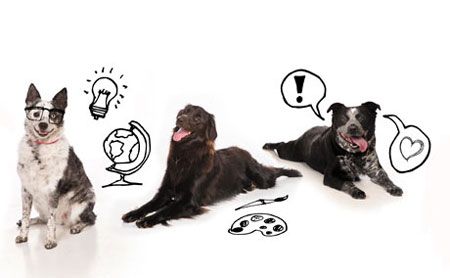
Photos courtesy of Greg Kindred
What's Dognition?
Dognition is a program developed by cognitive scientists, dog trainers and a veterinarian that purports to "find your dog's unique genius" through playing games with your dog and completing a pre-testing assessment. Here's how it works:
Pre-test. After you register and complete the profile information for your dog (things like age, breed, coloring and sex), you fill out a pre-testing assessment. The assessment asks how your dog reacts in certain situations. For example, "When you (the owner) laugh, does your dog wag its tail?" Or "How does your dog react when it sees another dog outside?"
Play the games.There are 20 games in the Dognition program that you complete with your dog. Each game is prefaced with instructions in both text and video format, and a description of why this game was chosen and what aspect of cognition is being tested. There are only a few, readily at-hand props needed to complete the testing. The games fall into five categories: empathy, communication, cunning, memory and reasoning.
See the results. After completing the games you'll receive your dog's profile report. The report "gives you individualized insight into the cognitive strategies your dog employs, and in-depth breakdowns of the results of each game," the site says. It also includes graphs that show where your dog falls on the scale for each of the five categories.
After testing and receiving results, users may continue with a subscription for personalized activities they can perform with their pooch, based on their dog's results. The one-time assessment is $19. Users can also subscribe monthly for the one-time fee of $19 and a $9-a-month recurring fee or yearly for $79.
Meet our doggie testers:
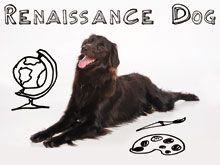
Agnes
Renaissance dog? Is that a nice way of pointing out Agnes' Machiavellian trash-digging? Check out her dognition experience.
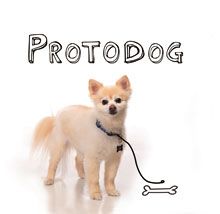
Max
What happens when an unstoppable force (Max's love of treats) meets an immovable object (Max's fear of cups)? In this case, the Protodog is born. Check out Max's dognition experience.
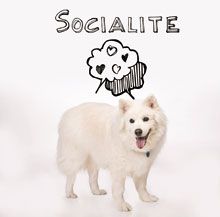
Sebastian
Tricks are what dogs do for treats. As socialite, I practice illusions. Check out Sebastian's dognition experience.
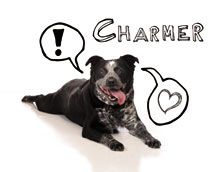
Blitz
This precious little charmer will wrap you around his little paw. Check out his dognition experience.
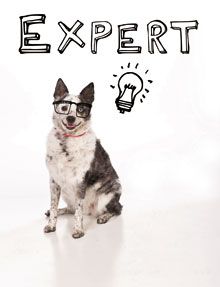
Zoey
Empathy and memory scored this pooch top marks as an expert. Check out her dognition experience.
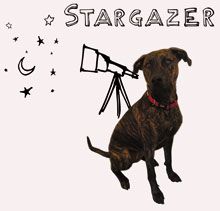
Janeway
She's right down the middle for self-reliance versus collaborative, trustworthy versus wily and impulsive versus logical. But she's way individualistic versus bonded and way retrospective versus present-minded. Check out her dognition experience.
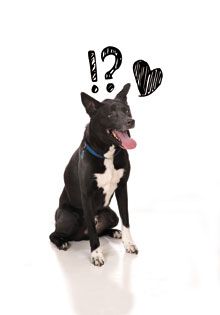
Ike
This clever fellow doesn't behave like any other dog we've encountered, and he defies all labels-so we won't even try! Check out his dognition experience.
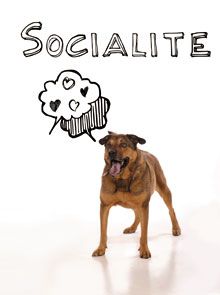
Alvin
It was fun to watch his brain work, have a new way to interact with him and have some assumptions challenged and changed. Check out Alvin's dognition experience.
Up next-all about the nine profiles
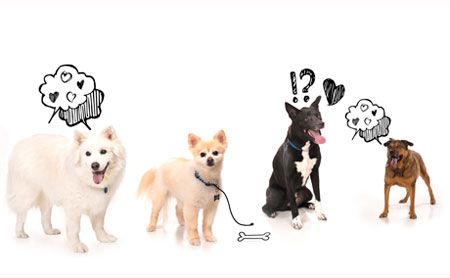
Photos courtesy Greg Kindred
The profiles

An accomplished problem solver with great communication skills, an Ace has everything that makes dogs special, and a little more besides. Aces are the dogs with it all-pros at reading and understanding social information, and just as good at solving problems on their own. The only downside to having a dog as gifted as an Ace is that sometimes they may be too smart for their own good. They may occasionally try to get away with things they shouldn't and then rely on a soulful gaze and an ingratiating nuzzle to win you over. There isn't much that escapes an Ace, and their owners can feel lucky to have such a talented dog as part of their pack.

A smooth operator, the Charmer relies on a secret weapon-you. Charmers have exceptional social skills, meaning they can read human body language like a book. Seeing as these social skills are paired with just the right amount of independent problem solving skills, it's no surprise that Charmers can be quite mischievous! Indeed, this combination of cognitive skill sets means that many Charmers are not above using their owner's social information to get their own way. Whether cooperative or sneaky, these dogs are deeply in tune with their owner and very clever.

Social graces are the keys to the Socialite's success. In a culture obsessed with academic achievement, sometimes it is easy to overlook the fact that gracefully interacting and communicating with others requires talent. In the Socialite's case, they take this talent to a whole new level. Although they rely less on independent problem solving skills than other dogs, don't jump to any conclusions about the Socalite's intelligence. They rely on a very specific strategy-using the humans in their pack to get what they want. Judging from their performance in the social games of the Dognition Assessment, we suspect that most of the time this strategy succeeds.

The Expert can solve many problems solo, but is still part of the team. Dogs with the Expert profile have all of the cognitive tools they need to solve most of their daily problems on their own. They have a relatively strong memory along with the ability to solve many types of problems they've never seen before. Due to these cognitive abilities, Experts tend to be less reliant on humans than other dogs. Their results in the social component of the Dognition Assessment, however, show that it isn't that Experts cannot understand humans, rather they are just more reliant on their own strategies, which have led them to success time and again.

The Renaissance Dog is good at a little bit of everything. In a world of helicopter parents and the relentless pursuit of perfection, it is easy to discount the value of consistent achievement. Renaissance Dogs are the canine embodiment of this reliability. Rather than being completely dependent on individual cognitive strategies, Renaissance Dogs show impressive flexibility across all 5 cognitive dimensions. While others focus on the proverbial tree, the Renaissance Dog can see the entire forest.

The Protodog is reminiscent of the first dogs to become much loved members of the human pack. Thousands of years ago, when our human and canine ancestors first began their extraordinary relationship, there was something about certain wolves that distinguished them from the rest of the pack. Rather than a traditional wolf form of intelligence, these pioneer dogs, or protodogs, had budding social skills enabling them to approach and interact with humans in a whole new way. Protodogs are akin to these first dogs; flexible when it comes to solving problems on their own but with sufficient social acumen to turn to humans for help when needed.

A keen understanding of physics makes this dog practically a rocket scientist. While many dogs struggle when it comes to cause and effect, Einsteins have an excellent comprehension of the physical world. They also show one of the key qualities of genius: the ability to make inferences. Anyone can learn to solve a problem, but it is only by making inferences that we can flexibly solve a problem we have never encountered before. While, like many brilliant minds, Einsteins occasionally struggle with social situations, their avid grasp of the physical world more than compensates.

A cheeky wolfishness and a strong independent streak are what make a Maverick so successful. The Maverick-the one who strikes out alone and solves problems in their own way. With cognitive characteristics closer to their wolf ancestors than most other dogs, Mavericks are relatively unique in the dog world. These dogs definitely prefer to tackle problems independently, and when it comes to understanding the physical world, hold their own compared to other dogs. In the end, if you can't solve it on your own, is it really worth solving?

There's more going on in the Stargazer's mind than meets the eye. Stargazers, usually considered to be aloof by their owners, have their own often misunderstood type of genius. Generally their cognition is geared toward self-reliant and present-minded strategies, rather than being overly concerned with past events and human collaboration. They have a wild, wolf-like side, which can be a great compliment to the lifestyle of a rugged individual. Due to this, Stargazers may have to work a little harder than other dogs in social situations, and their owners may have to work a little harder than other owners in training. While what goes on behind the Stargazer's eyes may sometimes seem mysterious, it is by no means dull. Perhaps these dogs see a whole other world that is hidden to us.
The results, please!
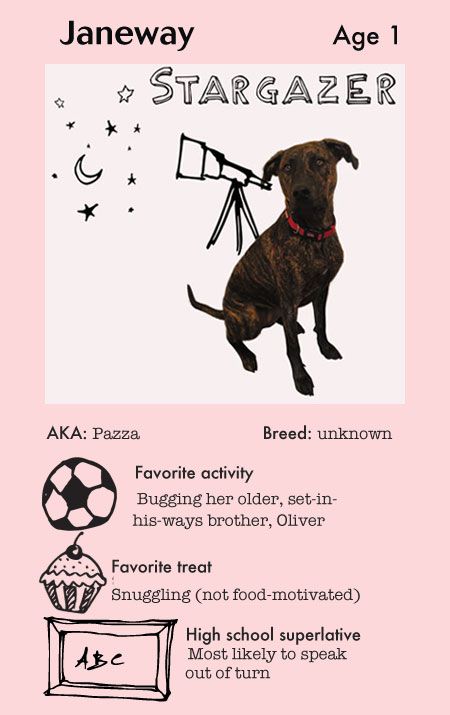
dvm360 staffer: Mindy Valcarcel, Medicine Channel Director
Tests completed, and Janeway is a Stargazer! She's right down the middle for self-reliance versus collaborative, trustworthy versus wily and impulsive versus logical. But she's way individualistic versus bonded and way retrospective versus present-minded. I might have tended toward this personality choice for Janeway before the testing, especially because of the line “Stargazers may have to work a little harder than other dogs in social situations.” But the mention of Stargazers being “aloof” threw me off. She loves to be right beside us. Her mind must be wandering far away while nuzzling next to us.
As for the testing itself, we did all of it at once and she was completely over it by the end, where her not-so-food-motivated nature kicked in.
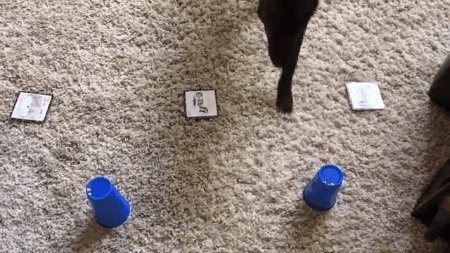
A little sleight of hand: In this test, you show the dog that you're hiding a treat under one cup, then sneakily put the treat under the other cup, point to the cup the treat is in and see which one the dog picks when you call it, which is where the video kicks in. This shows whether the dog responds more to where you point or to watching where you place a treat. Janeway didn't pick the cup with the treat, but at this point (it was one of the last games), she was pretty much always picking the cup on her left no matter what.
Eventually it took much coaxing to get her to approach the test area to find the treat. In general, she tended to just go to the right first no matter what. It became a habit, which she did overcome on a few of the tests. I don't think she really cared where the food was, especially in the end.
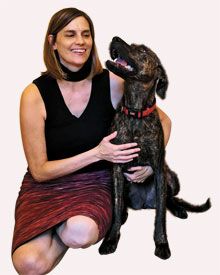
Props to Janeway's brother, Oliver, who sat patiently and watched the process, overcoming his extremely food-motivated nature and not interfering with Janeway's tests. (He did get some treats along the way for just being his amazingly sweet self, of course.)
We always see reflections of ourselves in our dogs, and I, too, think of myself as a bit of a Stargazer. I love thinking that Janeway and I have active imaginations. It makes life more interesting!
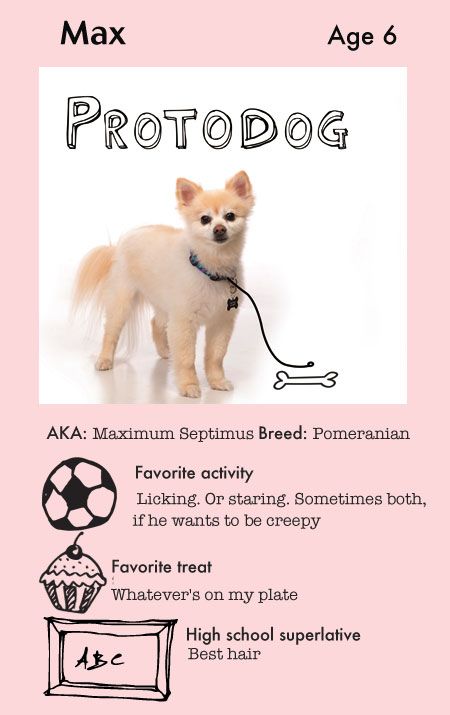
dvm360 staffer: Hannah Wagle, Assistant Content Specialist
What happens when an unstoppable force (Max's love of treats) meets an immovable object (Max's fear of cups)? In this case, the Protodog is born.
My dude Max is a Protodog. According to Dognition, "Max is reminiscent of these first dogs. Independent problem solving may not be a strong suit, but he has what counts-a desire to communicate and connect with you."
I think that's very true. Throughout the testing, he would look to me for assistance. This would result in minute-long staring contests (his favorite activity) until I could help. He's not only very bonded to me, he's very dependent on me for almost everything. I knew this beforehand, but it was sweet to have confirmed.
Things I think skewed testing: Max is incredibly skittish. He came from a puppy mill before he was rescued and because of his past has always been incredibly wary of everything around him. Which means that the tests involving cups were a struggle. He does not like cups.
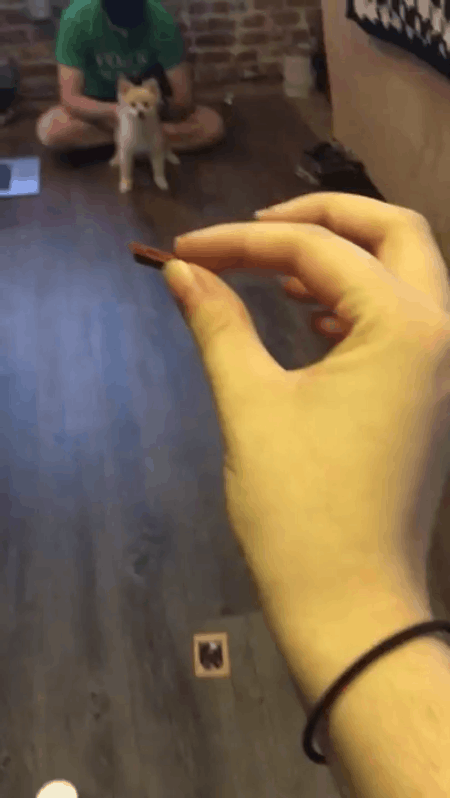
Please help, hooman: When asked to choose the cup with the treat, Max's fear of cups interferes.
Another is the fact that he's a very, very picky eater. He prefers to graze from his food bowl throughout the day-he'll even spit out any bit of human food he doesn't like. I had to break testing up over the course of three days for fear that nothing but treats in his system would make him sick. These tests require a lot of treats.
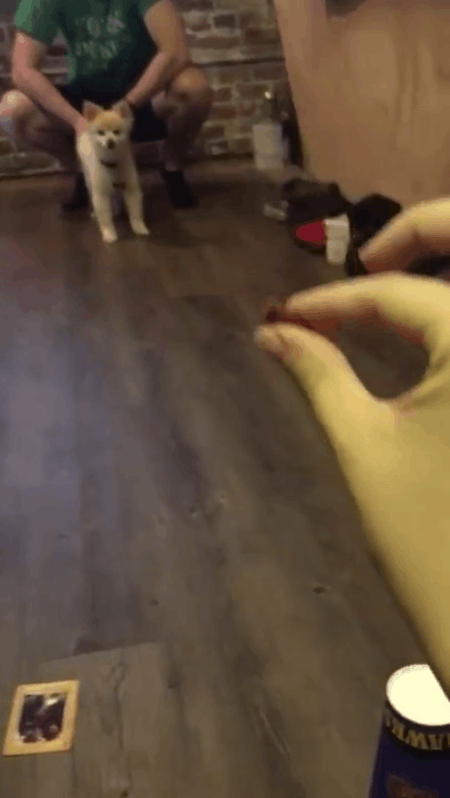
A cruel outcome: In the game of memory vs. smell, confusion wins.
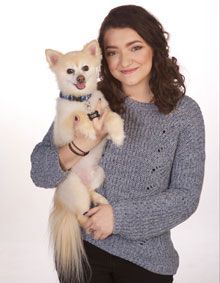
The least surprising was the cunning portion. My little con-man will look at me with the sweetest eyes before stealing whatever I just told him not to eat. That entire section lasted all of two minutes, since he'd just mosey up and eat treats regardless if he was being watched or not.
What I surprised me the most was the memory portion. I loved actually seeing his little gears turning as the tests were presented. I definitely underestimated his cognitive capabilities for that one!
I know a little bit more about how Max operates. There are times he may seem, well, vacant, but that's just part of his charm: He knows if he stares at me long enough he'll get something positive from me. Why he likes staring at nothing when it's dark out is a mystery Dognition has yet to solve, though.
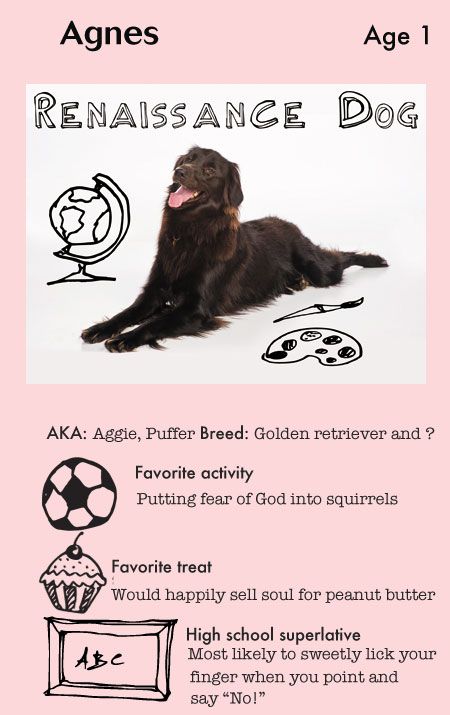
dvm360 staffer: Sarah Mouton Dowdy, Associate Content Specialist
Renaissance dog? Is that a nice way of pointing out Agnes' Machiavellian trash-digging?
According to Dognition, Agnes is a Renaissance Dog.
Results say: “Overall Agnes showed accomplished social skills and solid independent problem solving. Rather than being a specialist with a single expertise, Agnes is a generalist. While others focus on the proverbial tree, Agnes can see the entire forest.”
I say: It's hard to argue with results that say your dog is “good at a little bit of everything”-not exactly a hardline designation. Still, I'm a bit skeptical.
For example, in the empathy section, one of the games involved holding a treat under my eye to see how long Agnes would maintain eye contact.
Results say: “Judging by the extraordinary length of time Agnes spent gazing soulfully into your eyes, you probably often find her staring at you for no reason… Agnes may not want or need anything [when she stares at you]-she may just be hugging you with her eyes.”
I say: Agnes was staring soulfully at the treat, not my eyes, and would like treats to be the endpoint of all gazing. She does her most soulful gazing when I'm attempting to eat dinner.
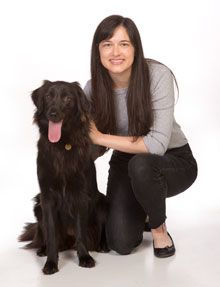
The cunning section seemed similarly dubious, as the tests weren't designed to measure her particular wily-ness. Placing treats on the ground and telling Agnes not to eat them-the same treats I'd just placed on the ground in previous games and told her she should eat-didn't slow her down a bit, regardless of whether or not I was looking. She's the only one in our house who eats off of the floor. Why would I put something down that I didn't want her to eat? Nonsense!
I might try the cunning tests again but use our recycling bin instead of treats. She regularly sneaks into the kitchen to steal empty cans or cartons. She knows it's wrong, so she'll slowly creep past us with her treasured trash and then attempt to tear it apart in Tasmanian Devil fashion.
Regardless, I loved seeing Agnes get worn out in a different way and will try to incorporate more brain games into our daily play.
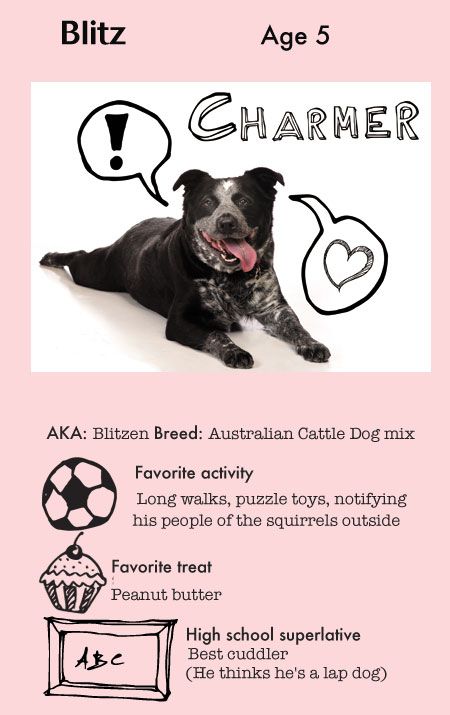
dvm360 staffer: Katie James, Associate Content Specialist
He'll wrap you around his little paw.
Blitz is a Charmer as I predicted. Charmers are known for reading body language and using that information to get what they want, which is exactly what he does. He scored off the charts in the empathy section and is very bonded to me, which I'd agree with the assessment on that.
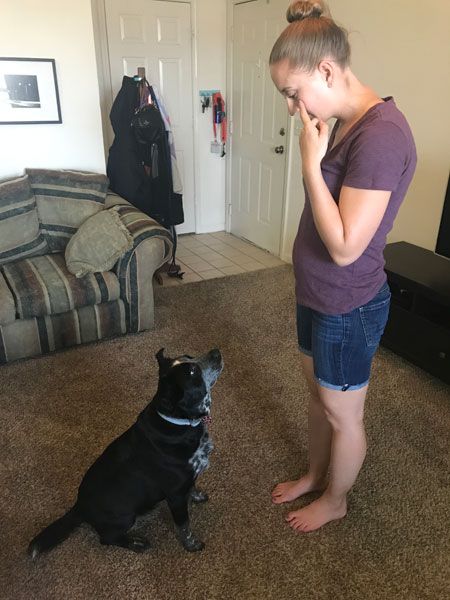
Look at that unwavering eye contact. He must be super bonded ... or lovingly staring at the treat in her hand.
Blitz really loves the puzzle feeders I've gotten him in the past, so I was curious to see how he'd perform on these tests. He liked completing the tasks, so I'll probably keep them in my repertoire. Being a cattle dog mix he needs a lot of mental stimulation and entertainment or he starts to misbehave out of boredom or for attention.
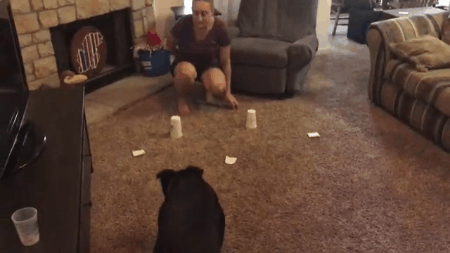
This game isn't hard, silly human.
Blitz is more collaborative than self-reliant. It's not that he can't figure it out, but he will look to me to see if I'll give
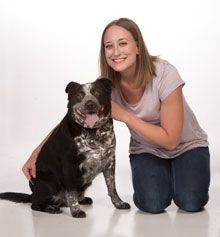
him a clue. In that way he also leans more on the trustworthy side than wily. On the game where I placed the treat on the floor and then tried various methods of looking at him or not looking at him, he just couldn't resist taking the treat all of the times. I had to laugh when the instructions said if your dog still hasn't taken the treat after 90 seconds you can give it to him, because if the treat was in sight there was no way Blitz wouldn't eat it. I was a little disappointed he didn't wait longer than he did, but the assessment said that this means he's less sneaky and more trustworthy because he didn't use the information against me to only take the treat when I wasn't looking.
We completed all of the games in one evening with a break of about 30 minutes in the middle. The instructions weren't clear as to whether or not you could complete the tests over a period of days or should do it all at once. Blitz was focused and engaged in all the tests, and he's very food motivated, so I didn't have trouble getting through them all, but it is A LOT of treats or food to give all in one sitting. It's still something to keep in mind if you're trying to watch your pet's weight.
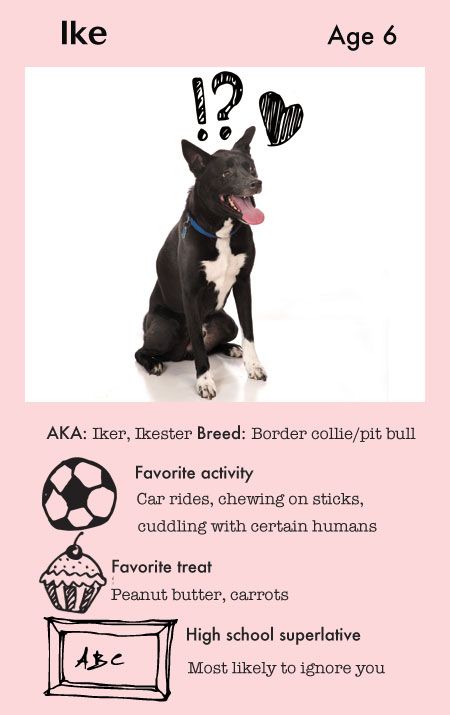
dvm360 staffer: Adrienne Wagner, Content Marketing Director
Ike got test anxiety, so we stopped the testing process when he began to seem anxious. Note: He's not the only dog on our staff to say “no way” to the testing, so warn your clients that not all dogs find the fun and games so fun.
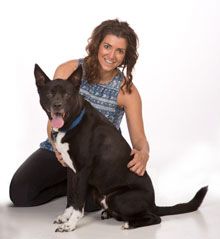
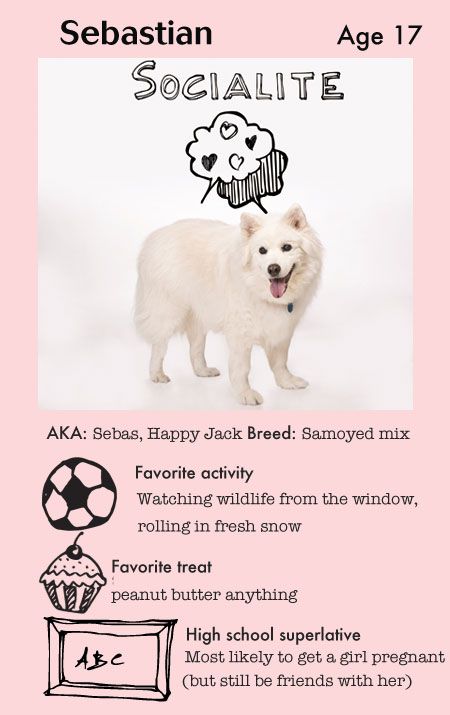
dvm360 staffer: Portia Stewart, Team Channel Director
Sebastian is a 17-year-old Samoyed mix with nerve damage that gives him a stiff gait and makes it difficult for him to enjoy walks, stairs and energetic physical activity. This has severely restricted some of his favorite activities (Sebastian fancied himself an amateur sled dog in his youth and was once an avid geocacher).
My take on Dognition with Sebastian
What Dognition has taught me about my dog is … that I became severely invested in my dog's results and what they would tell me about my dog. And about the time I realized I was deeply invested in whether Pupperoni or Beggin' Strips would affect the results of Sebastian's Dognition test results, I began to feel a deep sympathy for you, dear veterinary team members.
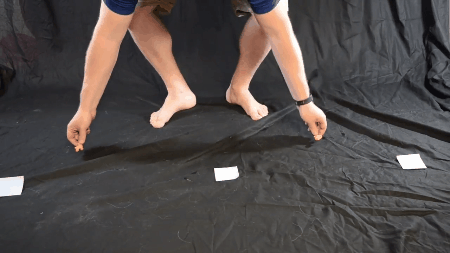
In this test, Sebastian must choose the treat that his owner points to.
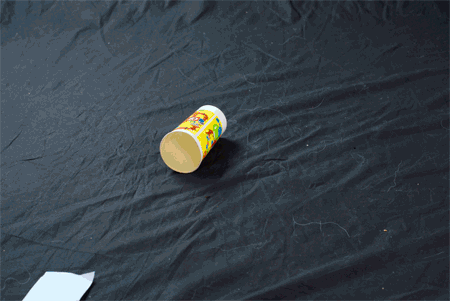
Sebastian successfully chooses the treat when he sees his owner place the treat. When it's moved to a different cup while he's not looking he's simply puzzled.
So what did Dognition give me?
I'd hazard to say Sebastian was enriched by the games and attention. And while his waistline didn't appreciate the treats, he performed some pretty cool mental gymnastics to earn them. (Note: It's easily a 2-½ hour process, and my older pooch needed breaks of a day or so between some activities. But the only whining and growling in the process was from my husband.)
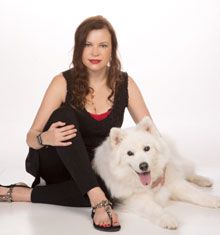
And what did I learn from Dognition?
Some fun activities Sebastian can enjoy that don't require physical activity. And I can affirm that I do indeed know the answer to "Who's a good boy?"
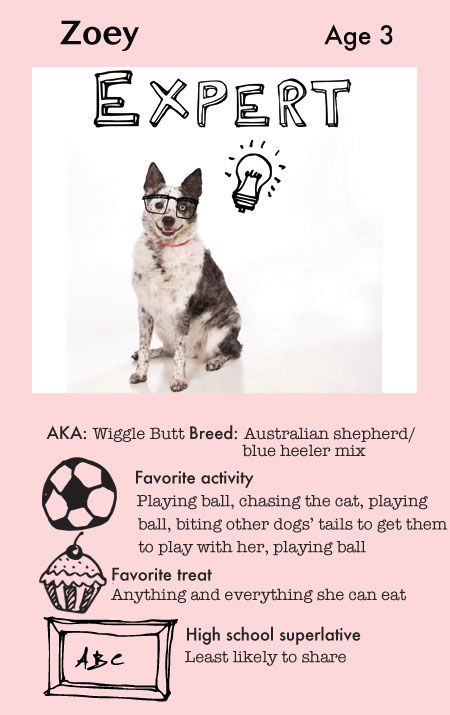
dvm360 staffer: Jennifer Vossman, RVT, CMP, Clinical Program Specialist
Zoey's Dognition profile has revealed that she is an Expert. Dognition defines the Expert as one who is “a specialist in independent problem solving, which requires a keen understanding of the physical world, a good memory and the ability to solve problems she has never seen before.” In the five categories tested, Zoey scored high on empathy, in the middle on communication and cunning, topped the chart on memory and leaned toward the logical side of reasoning.
We initially guessed Zoey would be an Einstein because of her ability to solve problems by making inferences and her struggles in social situations. I think she tested into the Expert profile because she didn't prove to solve problems by inference; rather, she proved to solve problems because of her memory. The profile states that “Zoey has an amazing working memory, which is the type of memory that allows your dog to keep information in mind for a few minutes and mentally manipulate it.” The example of this that fits Zoey to a tee is while playing fetch, if the ball goes over the fence or out of reach (i.e. disappeared from her sight), Zoey will remember where the ball went and bark and ‘point' so that we can retrieve it.
About the Dognition testing itself. They claim it isn't a test, just games to play with your dog. However, I felt that it was a test of patience on all parties. Zoey got bored playing the games and became very vocal when being timed or held back-which tested our patience in dealing with her impatience. I can't blame her impatience or the way she expressed it, it's like taking a kid to the candy store and telling them they will get candy only after being completely quiet for 5 minutes.
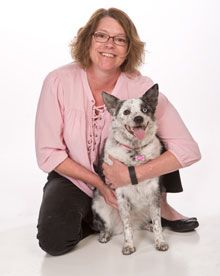
I also feel that some of the results can be skewed based on the training the dog has received. Zoey has been trained to ‘watch me' before doing any command or getting a treat. Likewise, she is trained to ‘leave it' until we either pick up what was dropped or we give her permission to take the treat (after a reasonable amount of waiting time). We did the testing over a span of a few days and I cannot imagine doing all of it in one sitting. I think they should recommend spreading the testing out, not only because of the massive amounts of treats your dog will receive, but also for the patience required by all parties.
Overall, I enjoyed the Dognition experience and I am proud to now say my dog is an Expert!
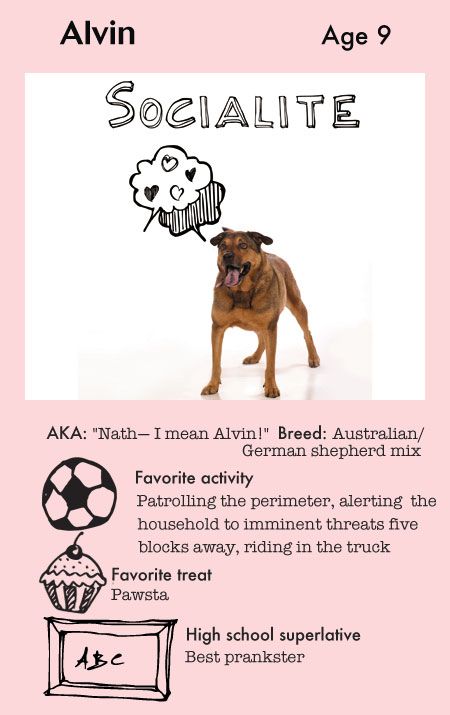
dvm360 staffer: Kristi Reimer Fender, News Channel Director
Alvin is a Socialite. At first I was surprised and skeptical, because he doesn't like to hang out with us when we're relaxing watching TV or whatever-he'd much rather be out in the yard keeping an eye on things. But then I realized he absolutely loves people. He gets super excited anytime someone new shows up: adult, kid, man, woman, doesn't matter-he's ecstatic. Often when he's near the back door and we think he wants in, we'll open the door. But rather than coming inside, he gives us a play bow and scampers off a few feet, as if to say, "Please come out and play with me!" So in that sense it does fit.
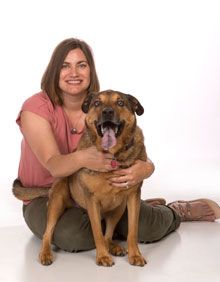
I'm really not sure the empathy tests are measuring empathy-they're measuring your dog's ability to focus on a treat. Beyond that, the tests seem like they'll yield a positive warm-fuzzy result even if the dog is only getting the right answer randomly because he has a 50-50 chance. And many of the results were determined by Alvin's ability to focus for the 30 seconds or so required rather than his cognitive abilities regarding the task at hand.
But it was fun to watch his brain work, have a new way to interact with him and have some assumptions challenged and changed-like a dog will always be able to find a hidden treat because of his sense of smell, which is not the case. All in all a super-fun experience that yielded some new insights into our pup's brain.